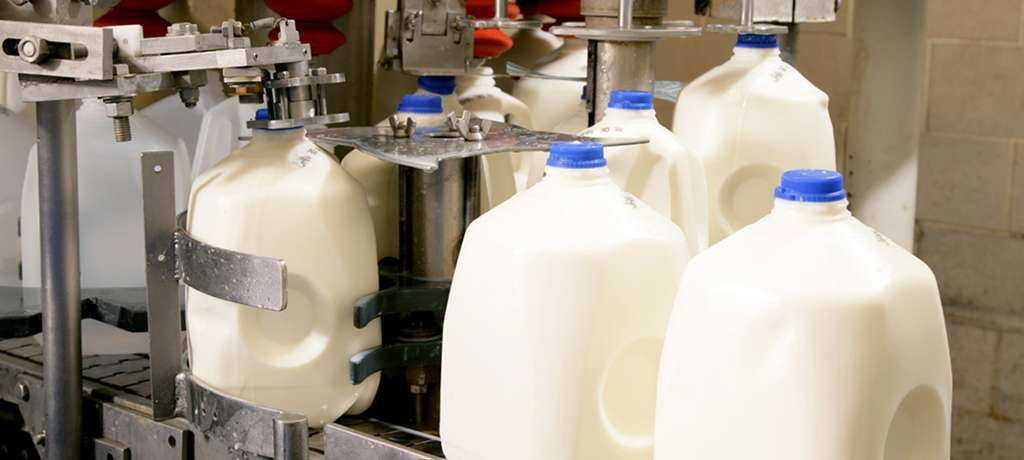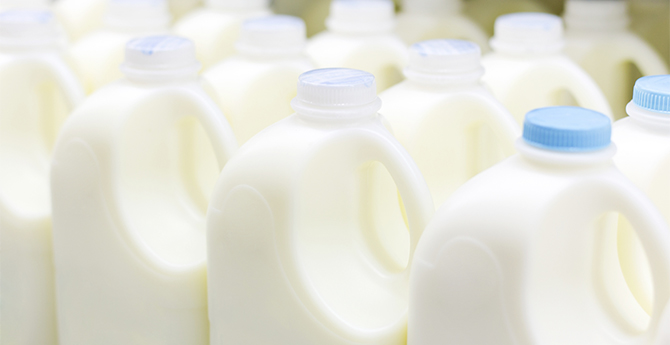The Facts About Hormones In Milk
Milk is one of the safest, nutrient-rich choices for you and your whole family. But there’s lots of confusion (and misinformation) about milk, where it comes from, and what’s added (or not added) to it. You may have even heard some confusion about hormones in milk. The fact is, there are NEVER any hormones added to milk, but if you’re concerned about the bovine growth hormone some farmers choose to give their cows (called rBST, or rBGH), there are many milk choices — both conventional and organic — not from cows treated with rBST.. Just check the label for indications it’s “rBGH-free milk” or “rBST-free milk” or “from cows not supplemented with rBST.”* In fact, the large majority of milk sold in stores is rBST-free milk. You can learn more here about why hormones in milk should not be a concern for you and your family.
* No significant difference has been shown between milk derived from rBST-supplemented and non-rBST supplemented cows.
Are There Hormones in my Milk?
Hormones are simply chemical messengers — and often proteins — produced naturally in both animal and plant foods– from celery to salmon. Because of this, there are no “hormone-free” foods, including milk.
Like other foods, all milk naturally contains very small amounts of hormones, but the body breaks them down during digestion, meaning they become instantly inactive. While there’s no such thing as a “hormone-free” milk (or any “hormone-free” food), there are many milk choices you can buy, including some produced from cows not given supplemental bovine growth hormones as indicated on the milk’s label.
What is Bovine Growth Hormone?
All animals, including humans, naturally produce hormones in their pituitary glands. This protein is necessary for normal growth, development and maintaining good health.
Dairy cows naturally produce milk after they give birth to a calf. Some farmers choose to use a supplemental bovine growth hormone to help cows produce more milk. While the FDA has affirmed that milk from cows given bovine growth hormone is safe, if you’re concerned about the use of growth hormones in milk production, you can look at the milk label to find milk produced without the use of rBST or rBGH. The large majority of conventional milk sold in stores is rBST-free milk, or you can choose organic milk, which by USDA regulation prohibits the use of bovine growth hormones.
Do hormones in milk cause early puberty? Should I worry about milk for my kids?
Milk is one of the top sources of much-needed nutrients – especially for growing kids. There is no credible scientific evidence that milk hormones cause early puberty in children. A recent study found that regularly consuming milk was not linked to the age menarche starts for 9 to 14 year-old girls. Other studies have also refuted this claim, suggesting that higher rates of childhood obesity in the United States may instead be responsible for earlier maturation.
Is there rBST or rBGH in Milk? What Is It?
Recombinant bovine somatotropin (rBST), sometimes referred to as recombinant bovine growth hormone (rBGH), is a synthetic version of the naturally occurring protein that helps cows produce milk. First approved for use in 1993, some dairy farmers may give their cows rBST or rBGH to help boost their herds’ milk production. But if you’re concerned with the use of supplemental bovine growth hormones used to improve milk production, there are many options to purchase milk that does not come from cows treated with rBST. In fact, the majority of milk sold in stores is rBST-free.
Is there a difference between milk produced from cows treated with rBST and cows not treated with rBST?
The FDA and other leading health organizations have concluded that there is no significant difference between the milk from cows that are treated with the supplemental hormone rBST and rBST-free milk. Comprehensive research into milk safety has shown that there is no reason to be concerned about drinking milk from rBST-treated cows.
Aren’t hormones added to milk?
No. Hormones are never added to milk. Milk is one of the simplest foods you can buy – nothing added except for vitamins A and D.
Does Organic Milk Have Hormones?
What about organic milk? Does organic milk contain artificial hormones?
There are NEVER any hormones added to milk – whether conventional or organic – but if you’re concerned about the use of bovine growth hormones in cows, USDA organic milk standards prohibit organic dairy farmers from treating the cows with any bovine growth hormones.




